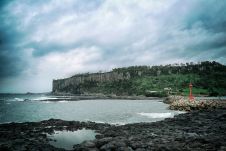Seven Members of the International Tribunal for the Law of the Sea Elected
On Wednesday 14 June 2017, seven members of the International Tribunal for the Law of the Sea were elected at the 27th Meeting of States Parties to the United Nations Convention on the Law of the Sea, in session at the United Nations Headquarters in New York, USA. The judges were elected for a term of nine years commencing on 1 October 2017. The States Parties re-elected the following two members: Judge Boualem Bouguetaia (Algeria) and Judge José Luís Jesus (Cabo Verde). In addition, the meeting elected Mr Oscar Cabello Sarubbi (Paraguay), Ms Neeru Chadha (India), Mr Kriangsak Kittichaisaree (Thailand), Mr Roman Kolodkin (Russian Federation), and Ms Liesbeth Lijnzaad (The Netherlands).
The biographies of the re-elected judges are available on the website of the Tribunal and those of Mr Cabello Sarubbi, Ms Chadha, Mr Kittichaisaree, Mr Kolodkin and Ms Lijnzaad may be found in document SPLOS/309, which is available on the website of the Division for Ocean Affairs and the Law of the Sea, Office of Legal Affairs, United Nations.
Elections for one third of the judges of the Tribunal are held every three years at the Meeting of States Parties. The judges are elected by the States Parties to the Convention by secret ballot for a term of nine years and may be re-elected. Each State Party may nominate up to two candidates from among persons enjoying the highest reputation for fairness and integrity and of recognised competence in the field of the law of the sea.
The Statute requires that equitable geographical distribution be assured among the Members and that the principal legal systems of the world be represented. It further stipulates that there should be at least three Judges from each geographical group as established by the General Assembly of the United Nations and that no two judges may be of the same nationality. The persons elected shall be those nominees who obtain the largest number of votes and a two-thirds majority of the States Parties present and voting, provided that such majority includes a majority of the States Parties.














